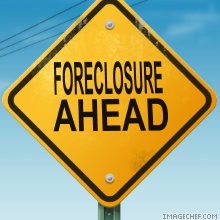 What do you do if you need to sell your home but you won’t be able to sell it for what you still owe on it? If you have had some unfortunate circumstances recently, you may qualify for a short sale.
What do you do if you need to sell your home but you won’t be able to sell it for what you still owe on it? If you have had some unfortunate circumstances recently, you may qualify for a short sale.
What is a Short Sale?
A short sale occurs when the net proceeds from the sale of a home are not enough to cover the sellers’ mortgage obligations and closing costs, such as property taxes, transfer taxes, and the real estate agent’s commission. A short sale is an alternative to foreclosure which may benefit both lender and borrower alike. The lender is getting paid back much of the money which it lent to the borrower as well as getting rid of the property. The borrower is getting out of their mortgage without having to go through foreclosure proceedings or expend any more money towards the home. Typically, the lender pays practically all sales costs, including repairs, escrow and title fees and realtor commissions.
How do I know if a Short Sale on my property is right for me?
Mortgage lenders have been more willing to work with borrowers faced with a financial hardship since the economic down turn by agreeing to the short sale process. If you are faced with a hardship and are unable to meet your financial obligation on your mortgage, your lender may prefer to settle the matter with you as opposed to taking the property through the foreclosure process.
If I do a Short Sale, what do I have to pay to sell my home?
In most cases, you will pay literally no sales costs if your lender approves the Short Sale. The agent commissions, title and escrow fees, and even most repair expenses are paid by the lender as part of the Short Sale approval. In most cases, the amount the lender reduces the sellers’ payoff is considered to be “forgiveness of debt.” This amount is normally taxable. Only a tax professional can make this determination, but expect to receive a 1099 on the amount forgiven by the lender as income for you to be taxed on for the year in which you closed the property.
How do I get started on the Short Sale process?
There are very specific categories that lenders consider “qualified hardships”. A short sale can only take place if both your property and you qualify. You will need to make sure you are working with an experienced agent so that you will increase the odds of having your lender accept the proposed short sale with your first request. However, not all lenders will accept a short sale.
What “hardship” is acceptable for a lender?
Below you will find a list of “hardships” that are frequently accepted by mortgage lenders:
Job loss, unemployment or significant income loss
Divorce or separation
Excessive medical bills
Death of spouse
Military service
Adjustment in mortgage payment or unforeseen increase in living expenses
Most mortgage companies or lenders require the hardship letter pursuant to a short sale. In the hardship letter, it is important to present the facts clearly, and above all else, be honest. The hardship letter must include the situation that caused your delinquency and the excuse for falling behind must be legitimate. A hardship must be proven and the mortgage company believes the loan is likely to go into foreclosure.
Do my mortgage payments need to be delinquent?
Most lenders will turn down your request for a short sale if the seller is currently making the payments. The only time they will consider it a short sale, is when the seller’s payments are delinquent. This presents a particularly difficult dilemma for the seller. Sellers who keep their payments current protect their credit rating, but the lenders require delinquency to do a short sale.
I have two loans; can I still do a Short Sale transaction?
Yes. You will have to work with both lenders. Most sellers are successful at getting both lenders to cooperate because neither lender wants to own another home through foreclosure.
I am concerned about my credit – how will a Short Sale affect my credit?
Late payments leading up to a Short Sale will negatively impact your credit. However, if your bank accepts a Short Sale and does not negatively report, the short sale will not in itself negatively impact your credit score. For sellers, the key advantage to selling in a short sale is avoiding foreclosure. A short sale does less damage to a person’s credit report than a foreclosure. It’s also less detrimental than a “deed in lieu” (of foreclosure), in which a borrower gives the lender the keys to the house and stops paying the loan.
At Mountain Living Real Estate, we are committed to helping you find the best solution to your current situation. Don’t delay asking for help it will only compound the issues you are facing. Call us today so we can discuss the options that may be available for you.
Return to Sellers page
